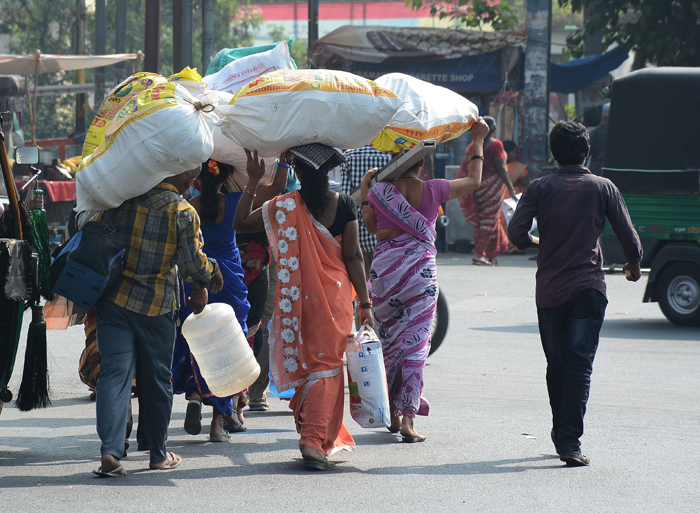M P Rabindranath
How much more proof does India need to declare the Trinamool Congress (TMC) a national security threat? In a move meant to build diplomatic consensus and global awareness against Pakistan-sponsored terrorism, the Modi government formed seven multi-party parliamentary delegations. Their mandate? To present before the world the undeniable evidence of India’s retaliatory strikes on Pakistan’s terror camps—a bold and strategic message that India will no longer tolerate cross-border terrorism.
And what does Mamata Banerjee’s TMC do? It pulls out of the initiative. Now she may claim that the party isn’t boycotting the event, only demanding that the Centre allow parties to nominate their representatives instead of cherry-picking names. But this excuse reeks of afterthought and seems designed to toe the Congress line. The Congress, too, expressed displeasure—especially after the Centre picked Shashi Tharoor, MP from Thiruvananthapuram, instead of any of the names it had recommended. Those names included controversial figures like Tarun Gogoi, who faces allegations involving his wife’s links to the ISI, and Anand Sharma, seen in that infamous photo alongside Sonia Gandhi and Rahul Gandhi signing an MoU with the Chinese Communist Party.
The Centre chose former Test cricketer and TMC MP Yousuf Pathan—someone who has represented India on international platforms and understands the importance of national honor.
This isn’t just political grandstanding—it’s sabotage. If refusing to stand with the nation in exposing Pakistan’s terror infrastructure isn’t treachery, then what is? This isn’t the first time the TMC has echoed anti-national narratives. But this time, the stakes are far higher.
To understand the deeper rot, one must unpack TMC’s DNA. The party is an offshoot of the same Congress ideology that has, for decades, diluted Hindu identity, pandered to minority fundamentalism, and divided India on the altar of vote-bank politics. Congress claims to have “won” India’s independence, but at what cost? The Partition—a blood-soaked betrayal—was the direct consequence of Congress’s weakness, Gandhi’s indecisiveness, and Nehru’s naked ambition.
Let’s not pretend anymore. Gandhi, hailed as the ‘Father of the Nation,’ had the option of preventing Partition. Had he truly wanted unity, he could have offered Jinnah the first Prime Minister’s post. But he didn’t. Instead, he installed Nehru—a man with no democratic mandate for the top job. Patel was the people’s choice, endorsed by the majority of provincial Congress committees. But Gandhi bypassed democracy to pay back the Nehru family’s financial contributions to the party.

The result? India was cleaved apart. Jinnah got Pakistan. Gandhi got martyrdom. And Nehru got power.
And since then, India has been paying the price. Nehru institutionalized appeasement. His government set the template for decades of Muslim vote-bank politics, whitewashed history, and deliberate marginalization of Hindu identity. Congress weaponized historians and academia to silence nationalist voices like the RSS and Hindu Mahasabha, branding them communal, while actively nurturing Islamic separatism under the garb of secularism.
Enter Mamata Banerjee.
Born in the Congress ecosystem, she built her career opposing the Left in Bengal—but only to inherit their appeasement agenda in a more dangerous form. West Bengal today stands transformed—not by development, not by industry, but by demography. Over two decades, under Mamata’s regime, Bengal has seen a disturbing tilt toward Muslim dominance in regions where Hindus now live in fear. Her silence on Hindu persecution, on communal riots, on illegal border infiltration—especially from Bangladesh—is not accidental. It’s strategic.
And now, reports suggest something far more sinister: the National Investigation Agency (NIA) is said to be probing over 20-30 foreign nationals allegedly embedded within Mamata’s cabinet and nearly 80 of her MLAs under scrutiny, according to emerging social media sources. If proven true, this is no longer just bad governance. This is foreign infiltration into Indian democracy.
It should shock no one if the Election Commission or the central government soon initiates action to de-recognize or even ban TMC. Mamata’s government stands accused not only of corruption and minority appeasement but also of enabling radical elements and undermining national interests.

Let’s call it what it is: the Congress-TMC-Left alliance represents an internal sabotage network. The Dravidian parties in Tamil Nadu, too, have echoed secessionist demands in the past, dreaming of a separate Tamil nation. Such ideologies are not political positions. They are national security threats.
India today is not the broken republic Nehru left behind. In ten years, Modi’s Bharat has become a global economic powerhouse and a militarily assertive state. But no military can succeed if the enemy festers within.
It’s time to clean house.
We need to stop treating parties like TMC and their ilk as mere political opponents. They are part of a larger problem—the domestic wing of the anti-India ecosystem. Their obstruction of national interest, their endorsement of Pakistan’s narrative, their silence on border infiltrations, and their role in demographic sabotage must be exposed. If banning or disqualifying such parties is the only way to safeguard the republic, then so be it.
India’s enemies no longer sit only across the border. Some of them sit in Parliament.





